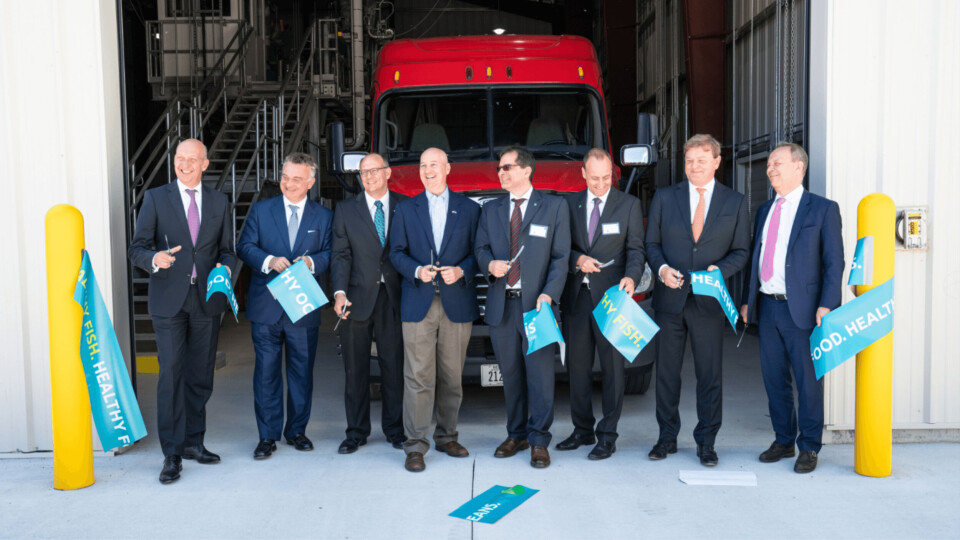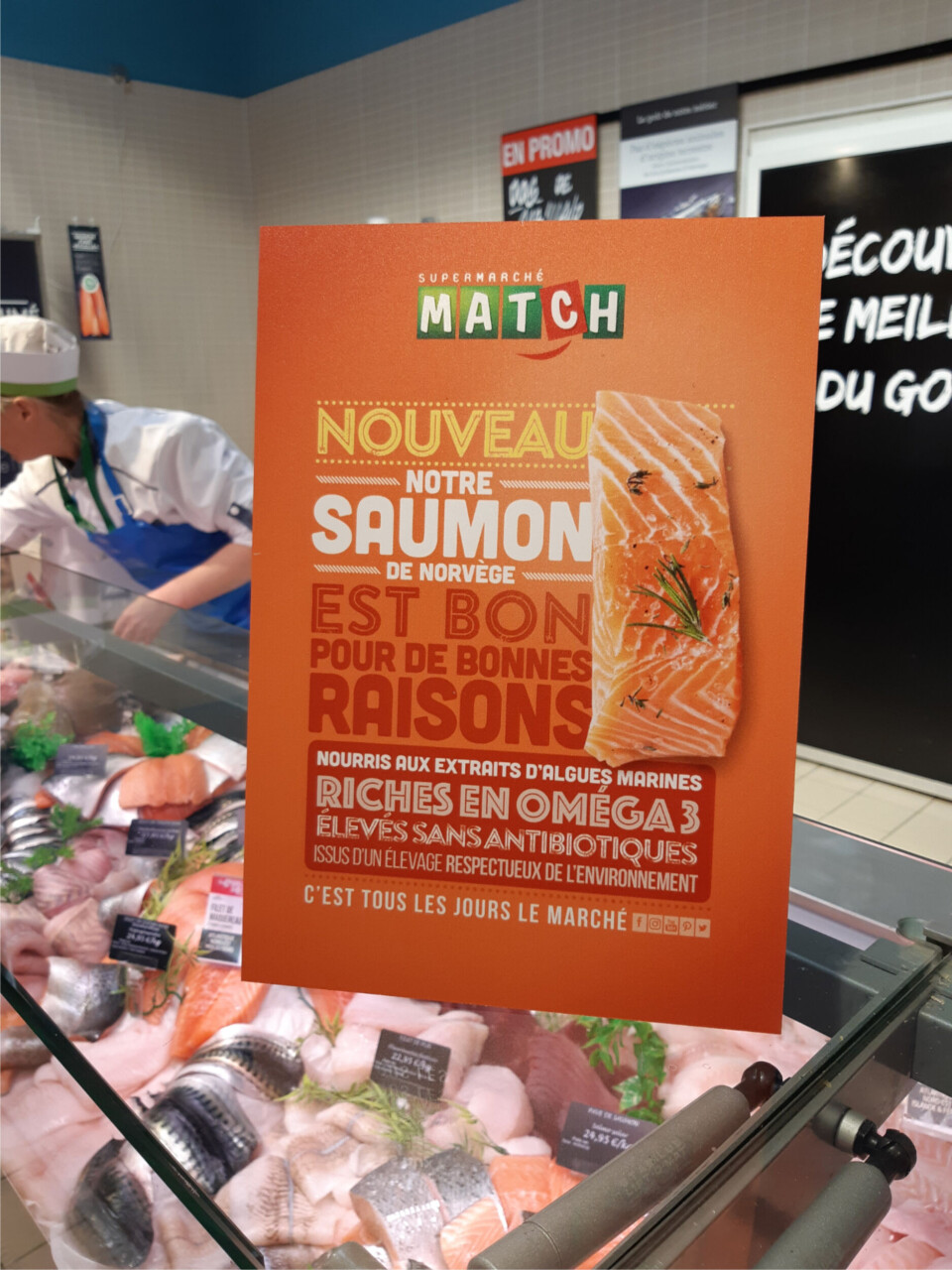
Algal oil producer Veramaris in early-stage UK talks
Algal oil producer Veramaris has begun talking to UK retailers and some Scottish fish farmers about including the product in salmon feed, chief executive Karim Kurmaly has said.
Kurmaly was speaking ahead of the official opening of the company’s commercial-scale plant in Blair, Nebraska, earlier this week. The fermentation plant will be able to supply 15% of the salmon industry’s omega-3 needs when it reaches full capacity over the next 12 months. “It would more than satisfy the entire Scottish requirement and more,” he said.

Discussions with retailers
Retailers are particularly important to Veramaris, which has found them an important ally in persuading salmon farmers to try the algal oil instead of fish oil.
So far only Norwegian salmon farmers have been using the oil, produced at pilot plants in Slovakia and South Carolina, but Veramaris has just started supplying in Chile.
“We have also started discussions with UK retailers and certain farmers in Scotland. These are at a very preliminary stage,” said Kurmaly.
“We don’t talk only to the feed millers. What we try and do is collaborate with feed millers, farmers, processors and the retailers. We try to get all parties around a table to discuss the journey plan.
“In France and Germany and elsewhere we find that retailers are the key change agents in the salmon industry. They’re the ones who are pulling, and I guess this is because they are facing consumer and NGO pressure, so they are responding to that.
“One of the key points from NGOs is there is a need to reduce the pressure on wild catch fisheries. This provides that possibility, that solution.”
Veramaris, a joint venture between German speciality chemicals producer Evonik and Dutch science-based nutrition and health firm DSM, marked the beginning of commercial production at the $200 million Blair plant by shipping out its first container of oil to Norway on Wednesday.
Kurmaly said Norwegian farmers such as Lingalaks were happy to publicise their use of the oil but added: “There are other farmers who are purchasing and utilising the natural marine algal oil that are not ready to go public.
“In terms of how many Norwegian farmers are actually using an algal product, there is quite a handful, and some of these are the largest ones.”
The chief executive said the algal oil could be used as a full or partial replacement for fish oil.
‘The farmer’s customer decides’
“The product has 2 to 2½ times more omega-3 EPA DHA than fish oil. The farmer decides – or I would say the farmer’s customer, the retailer, actually decides - whether they want to go for a 50% replacement of fish oil or 100% replacement, or they want to increase the omega-3 EPA DHA content, in which case it will be on top of fish oil.
“It depends on the target consumer segment that they’re trying to attract and what is the positioning of the salmon at the retail store.
“If the salmon is positioned as a sustainably bred salmon, then the retailer will tend to go for a replacement of fish oil. If they’re going for an increase in the omega-3 content – in other words a higher labelling content of EPA and DHA in the salmon – they would go for algal oil on top, or as a replacement plus higher levels.”
Space for ingredients
Kurmaly said that because the oil had a higher level of omega-3 – 50% rather than the 18%-22% in fish oil – it used less space in the feed formulation, which then opened up space in the formulation for other ingredients.
“When we talk to nutritionists that’s what they like,” he said. “Another point is that because it’s an oil it’s easy to handle, the same as fish oil.”
The production of the Veramaris algal oil is based on the natural algae strain Schizochytrium, which DSM brought to the partnership with Evonik. The joint development of the strain right up to commercial production, and the joint development of the process formed the basis for the new production plant.
Zero waste
Evonik constructed the plant on site in Blair next to its existing facility, where it has been running a fermentation process to produce Biolys, a source of the amino acid lysine for pigs and poultry.
Kurmaly said it would take 12 months to reach full production capacity, although it could be done more quickly if demand required it.
Sugar is used as feed for the algae and electricity is needed for the fermentation, but Veramaris was increasingly getting its energy from renewables, explained Kurmaly.
“Once we have extracted the algal oil from the algae, the algal biomass is fed to beef cattle, so we have a zero-waste facility.”






















































